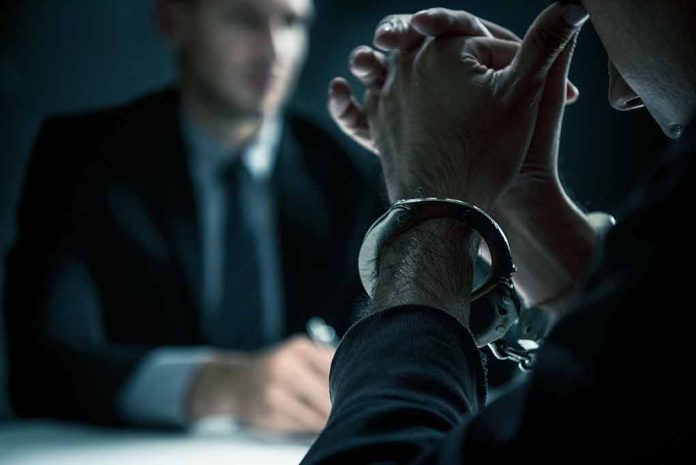
An American tourist is detained after attempting to contact the secluded Sentinelese tribe, raising concerns over the increasing threat posed by social media influencers to isolated indigenous communities.
Key Takeaways
- Social media influencers endanger uncontacted indigenous tribes, Survival International warns.
- Mykhailo Viktorovych Polyakov, a U.S. tourist, was arrested for engaging with the Sentinelese tribe.
- Polyakov’s actions highlight a trend of thrill-seeking influencers interacting with remote tribes.
- North Sentinel Island is legally protected to shield its inhabitants from external influences.
- The incident underscores the urgency of safeguarding isolated communities from diseases.
Arrest and Investigation
Mykhailo Viktorovych Polyakov, a U.S. citizen, was detained by local authorities after setting foot on North Sentinel Island. His mission to interact with the Sentinelese tribe involved leaving gifts such as a can of Coca-Cola and a coconut, along with attempts to attract attention using a whistle. Polyakov, who allegedly filmed his visit with a GoPro camera, endangered not only his own safety but also posed a significant risk to the tribe’s welfare by potentially introducing diseases.
The Andaman and Nicobar Islands police chief, HGS Dhaliwal, confirmed the capture of Polyakov’s landing on the restricted island through camera footage. The American tourist was presented before the local court and is currently on a three-day remand as investigations continue into possible local assistance. The broader inquiry spans local entities that may have facilitated the breach.
Indian police said on Thursday they had arrested a US tourist who sneaked on to a highly restricted island carrying a coconut and a can of Diet Coke to a tribe untouched by the industrial world.
Mykhailo Viktorovych Polyakov, 24, set foot on the restricted territory of North… pic.twitter.com/hZsV9LD3Hh
— We The Media (@WeTheMedia17) April 3, 2025
Legal and Cultural Protections
Strict legal boundaries exist around North Sentinel Island, with travel restrictions set to maintain a safe distance from the indigenous population. These measures aim to protect the tribe from external contact, which could expose them to novel pathogens to which they lack immunity. The Indian government faces ongoing scrutiny over its enforcement of these protections, emphasizing the delicate balance between national development interests and safeguarding tribal communities.
While no new contact is recommended by global rights groups, the island’s strategic and cultural significance underscores the importance of government intervention. Critics advocate for more vigorous protective measures in light of a 2018 incident when John Allen Chau, an American missionary, lost his life trying to reach the same tribe. The government remains steadfast, banning investigations that could inadvertently harm the tribe.
Cultural Implications and Future Safeguards
The Sentinelese, regarded as one of the most isolated groups globally, face unique challenges in preserving their way of life amidst increasing external threats. The recent incident has intensified calls for heightened vigilance against social media influencers, whose search for uncharted content puts vulnerable communities at risk. Such behaviors are considered “deeply disturbing” by Survival International, ceaselessly advocating tribal rights and protection.
Ensuring the safety of these tribes involves coordinated international efforts and stringent national policies. Ongoing awareness campaigns spotlight the dangers of unapproved contacts, reinforcing legal frameworks to prevent the critical endangerment of isolated populations. The global community is urged to act responsibly, respecting the sanctity and autonomy of the world’s most remote cultures.
Sources:
- Influencers ‘new’ threat to uncontacted tribes, warns group after US tourist arrest
- U.S. tourist arrested after bringing Diet Coke to remote tribe on forbidden island where another American was killed – CBS News
- U.S. Tourist Detained After Leaving Can of Coke for ‘World’s Most Isolated’ People



